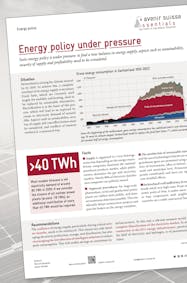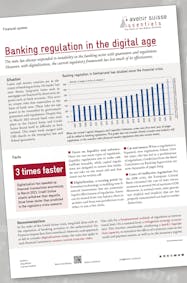With Swiss punctuality, the media regularly write about Switzerland’s sky high prices compared with its neighbours. High prices are seen as unfair, and repeatedly provide material for politicising. The upcoming reform of Switzerland’s competition rules should, among other things, extend the Competition Commission’s powers on supervising price abuses.
Butting into companies‘ right to set prices, however, is a very tricky business, and undesirable economic side effects are by no means uncommon. And it’s a fallacy to assume high prices can be countered by public sector meddling in price setting mechanisms
The second of Avenir Suisse’s new „avenir standpunkte“ (points of view) series examines regulatory policy and tries to offer short and easily understandable analyses, positions and suggestions. It looks at how other countries tackle such problems and asks if and when price regulation is justifiable, as well as who should be responsible?
As to dealing with Switzerland’s „unreasonable prices“, Samuel Rutz, Avenir Suisse’s deputy director, has a simple suggestion. Just remove the relevant passage in the cartel law (rather than changing it, as the Ständerat – the upper chamber of parliament – suggests). Elimination would free the Competition Commission of responsibility for regulating prices – the most peripheral of its duties. Its right to intervene in price setting would thus be limited to just those areas where free competition doesn’t work properly: namely certain forms of monopoly.





